The Christian Democratic Union (CDU) stands as a prominent force in German politics, shaping the nation’s landscape for decades. Founded on Christian principles, the party has evolved into a modern political powerhouse, navigating the complexities of contemporary society while remaining true to its core values.
From its inception to its present-day influence, the CDU’s journey has been marked by significant milestones, ideological shifts, and electoral triumphs. This comprehensive overview delves into the party’s history, ideology, structure, and impact on German society, providing a nuanced understanding of its enduring role in shaping the country’s political landscape.
Historical Background
The Christian Democratic Union (CDU) is a center-right political party in Germany. Founded in 1945, it has been one of the two major parties in German politics since the establishment of the Federal Republic of Germany in 1949, along with its traditional rival, the Social Democratic Party (SPD).
The CDU was founded on June 26, 1945, in Berlin by a group of Christian Democrats led by Konrad Adenauer. Adenauer, who became the first Chancellor of West Germany in 1949, was a key figure in the party’s early development. He led the CDU to victory in the first federal election in 1949, and served as Chancellor until 1963.
Founding Principles
The CDU’s founding principles are based on Christian social teaching, which emphasizes the importance of individual freedom, social justice, and the common good. The party’s program is based on the principles of Christian democracy, which seeks to combine Christian values with democratic principles.
The CDU is committed to a free market economy, but it also believes in the importance of social welfare programs to help those in need. The party supports a strong European Union, and it is a member of the European People’s Party (EPP), a center-right political group in the European Parliament.
Evolution
The CDU has evolved over time, but it has remained committed to its core principles. The party has been in power for most of the post-war period, and it has played a key role in shaping German politics. The CDU has been led by a number of prominent figures, including Konrad Adenauer, Ludwig Erhard, Helmut Kohl, Angela Merkel, and Armin Laschet.
The CDU has faced a number of challenges in recent years, including the rise of the far-right Alternative for Germany (AfD) party. However, the CDU remains the largest party in Germany, and it is likely to continue to play a major role in German politics for many years to come.
Political Ideology
The Christian Democratic Union of Germany (CDU) is a center-right political party in Germany. It is the largest party in the Bundestag, the German parliament, and has been the leading party in the German government for most of the post-war period.
The CDU’s ideology is based on Christian democracy, a political philosophy that combines Christian values with democratic principles. The party’s core values include the dignity of the individual, the importance of the family, and the value of a free market economy.
Stance on Key Issues
The CDU’s stance on key issues is as follows:
- Social welfare: The CDU supports a strong social safety net, but believes that it should be based on individual responsibility and subsidiarity. The party supports a universal basic income and a minimum wage.
- Economic policy: The CDU supports a free market economy with a strong social market orientation. The party believes that the government should play a role in regulating the economy and providing a level playing field for businesses.
- Foreign affairs: The CDU supports a strong European Union and a close relationship with the United States. The party believes that Germany should play a leading role in international affairs.
Comparison with Other Parties
The CDU is a center-right party, but it is more moderate than some other right-wing parties in Germany, such as the Alternative for Germany (AfD). The CDU is also more pro-European than the AfD.
Remember to click OGC Nice to understand more comprehensive aspects of the OGC Nice topic.
The CDU’s main rival is the Social Democratic Party of Germany (SPD), a center-left party. The SPD is more supportive of social welfare programs and a stronger role for the government in the economy.
Evolution of the CDU’s Ideology
The CDU’s ideology has evolved over time. In the early years of the Federal Republic of Germany, the party was more conservative and focused on economic growth. In the 1970s, the party began to adopt more socially liberal policies, such as support for abortion rights and same-sex marriage.
In recent years, the CDU has become more conservative again, especially on issues such as immigration and law and order.
Influence of Christian Democracy
Christian democracy has a significant influence on the CDU’s ideology. The party’s core values are based on Christian principles, and the party’s policies are often guided by Christian social teaching.
Christian democracy emphasizes the importance of the family, the dignity of the individual, and the value of a free market economy. These values are reflected in the CDU’s policies on social welfare, economic policy, and foreign affairs.
Role in Shaping German Political Discourse
The CDU has played a major role in shaping German political discourse. The party has been the leading party in the German government for most of the post-war period, and its policies have had a significant impact on German society.
The CDU’s emphasis on Christian values has helped to shape German attitudes towards social welfare, family, and education. The party’s support for a free market economy has helped to make Germany one of the most prosperous countries in the world.
The CDU’s foreign policy has helped to make Germany a respected and influential member of the international community.
Organizational Structure
The CDU is organized into a federal structure, with regional and local branches throughout Germany. The party is led by a chairperson, who is elected by the party’s delegates at a national convention. The chairperson is responsible for the overall leadership of the party and for representing the party to the public.
The CDU’s membership is open to all German citizens over the age of 16. The party has a strong base of support among older voters, particularly in rural areas. The CDU also has a youth wing, the Junge Union, which is open to members aged 14 to 35.
The CDU’s internal decision-making processes are based on consensus. The party’s leadership typically consults with regional and local branches before making major decisions. The party’s national convention is the highest decision-making body, and it meets every two years to elect the party’s leadership and to adopt the party’s platform.
The CDU has strong relationships with a number of other organizations, including trade unions and business groups. The party also has close ties to the Catholic Church.
The CDU’s organizational structure has a number of strengths. The party’s federal structure allows it to adapt to the needs of different regions of Germany. The party’s strong base of support among older voters gives it a stable foundation. The party’s close relationships with other organizations give it access to a wide range of resources.
However, the CDU’s organizational structure also has some weaknesses. The party’s consensus-based decision-making process can sometimes lead to slow and inefficient decision-making. The party’s strong base of support among older voters makes it difficult to attract younger voters. The party’s close ties to other organizations can sometimes lead to conflicts of interest.
Electoral Performance
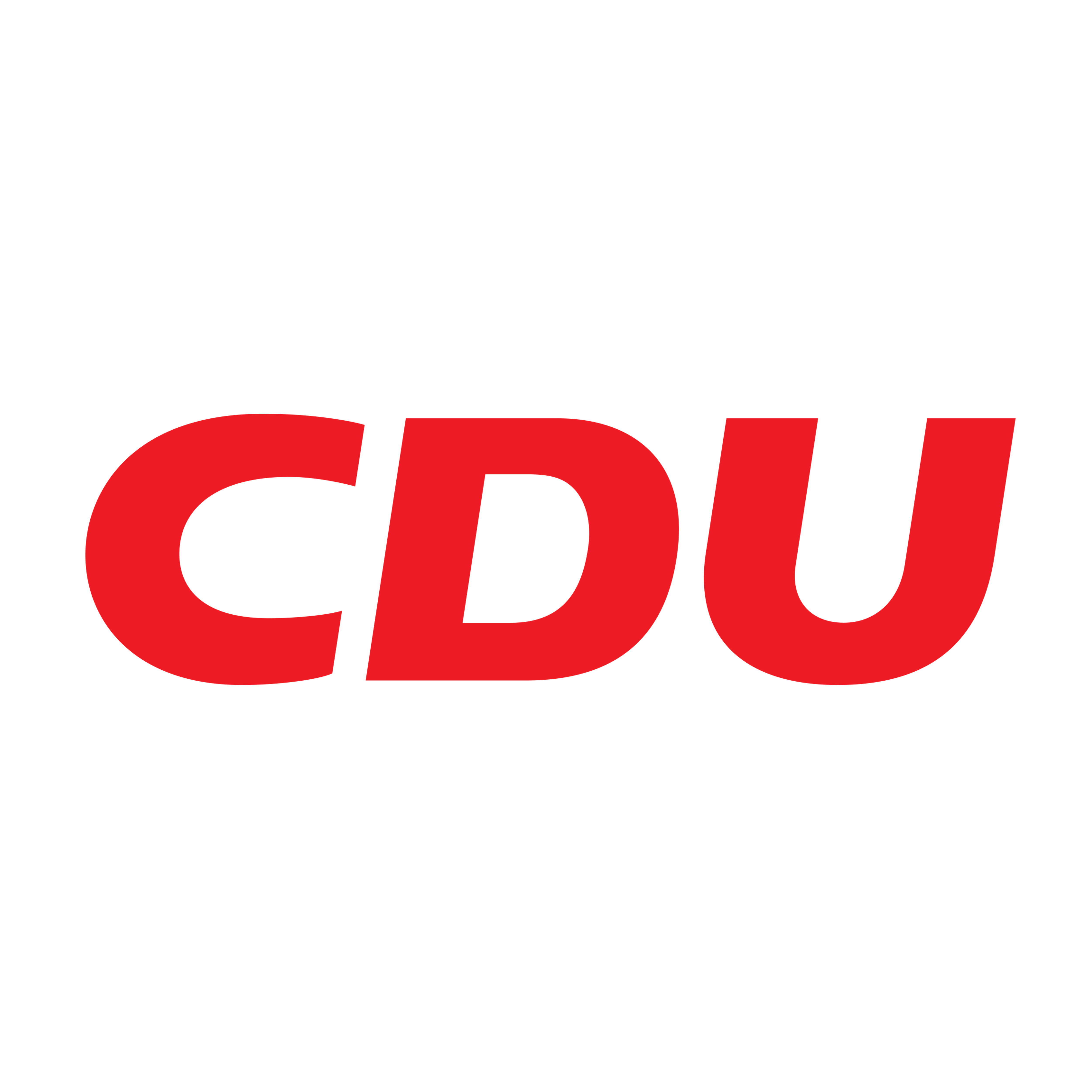
The Christian Democratic Union (CDU) has been a dominant force in German politics, shaping the country’s political landscape for decades. Its electoral performance has been marked by both successes and setbacks, influenced by a range of factors.
Factors Contributing to Successes
The CDU’s electoral successes can be attributed to several key factors:
- Strong leadership: The party has been led by charismatic and influential figures, such as Konrad Adenauer, Helmut Kohl, and Angela Merkel, who have played a pivotal role in shaping the party’s image and policies.
- Conservative values: The CDU has consistently appealed to voters with its conservative values, emphasizing traditional family structures, economic stability, and law and order.
- Economic competence: The party has often been perceived as the party of economic competence, attracting voters who value fiscal responsibility and a strong economy.
Factors Contributing to Failures
Despite its successes, the CDU has also faced electoral setbacks:
- Loss of support: In recent years, the CDU has lost support to newer parties, such as the Alternative for Germany (AfD) and the Greens, which have captured voters who feel the CDU has become too centrist or out of touch with their concerns.
- Internal divisions: The CDU has sometimes been plagued by internal divisions, particularly between its more conservative and moderate wings, which can weaken its electoral appeal.
- Changing political landscape: The German political landscape has become more fragmented in recent years, with the rise of new parties and the decline of traditional parties, making it more difficult for the CDU to maintain its dominant position.
Comparison to Other Parties, CDU
Compared to other political parties in Germany, the CDU has generally performed well electorally. It has consistently been the largest party in the Bundestag, the German parliament, and has often formed governing coalitions with other parties. However, in recent years, the CDU’s electoral performance has declined, and it has lost ground to other parties, particularly the AfD and the Greens.
Key Policies
The CDU’s policies are centered around Christian democratic principles, emphasizing individual freedom, social responsibility, and a strong market economy. They prioritize stability, security, and prosperity for all German citizens.
The CDU’s policies have a significant impact on German society. Their focus on economic growth and stability has contributed to Germany’s strong economy and low unemployment rates. Their policies on healthcare, education, and environmental protection have also had a positive impact on the well-being of German citizens.
Healthcare
The CDU supports a universal healthcare system that provides affordable and accessible healthcare to all Germans. They believe that healthcare is a fundamental right and that everyone should have access to quality medical care. The CDU’s healthcare policies focus on improving the efficiency and quality of the healthcare system, while also ensuring that it remains affordable for all.
Education
The CDU believes that education is the key to a successful future for Germany. They support a high-quality education system that is accessible to all children, regardless of their background. The CDU’s education policies focus on improving the quality of teaching, increasing the number of qualified teachers, and providing more opportunities for vocational training.
Environmental Protection
The CDU is committed to protecting the environment and ensuring a sustainable future for Germany. They support policies that reduce greenhouse gas emissions, promote renewable energy, and protect biodiversity. The CDU’s environmental policies focus on finding practical solutions to environmental challenges, while also ensuring that the economy remains competitive.
The CDU’s policies are generally more conservative than those of other political parties in Germany. However, they are also more moderate than the policies of some other conservative parties in Europe. The CDU’s policies are designed to appeal to a broad range of voters, from traditional conservatives to more moderate voters.
Leadership
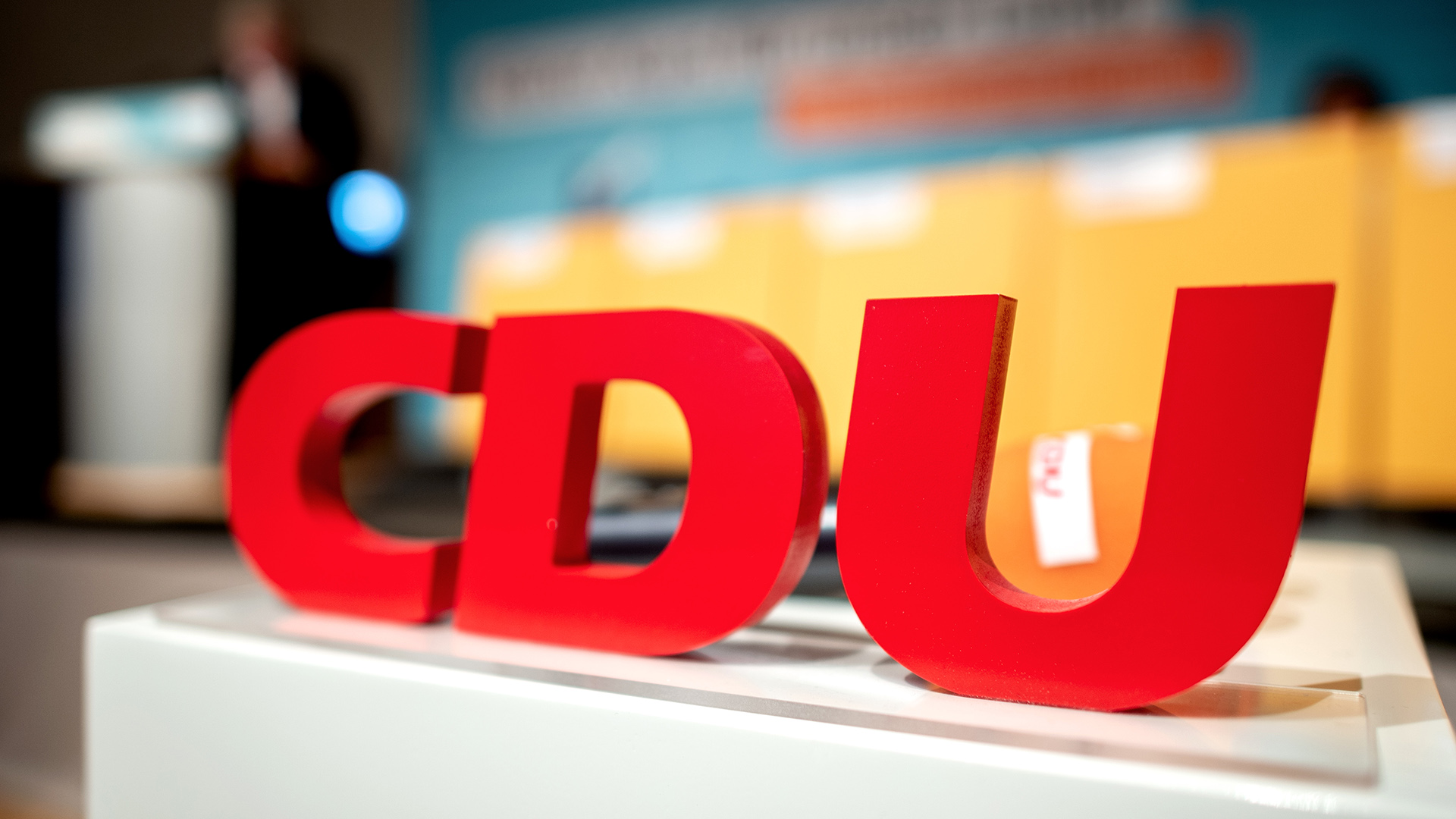
The Christian Democratic Union (CDU) has been shaped by a series of influential leaders throughout its history. These individuals have played a crucial role in defining the party’s ideology, policies, and direction.
The CDU’s first leader was Konrad Adenauer, who served as Chancellor of West Germany from 1949 to 1963. Adenauer was a conservative Catholic who believed in the principles of Christian democracy. He was instrumental in establishing West Germany as a stable and prosperous democracy, and he played a key role in the country’s integration into the Western alliance.
Adenauer was succeeded by Ludwig Erhard, who served as Chancellor from 1963 to 1966. Erhard was a more liberal economist than Adenauer, and he presided over a period of rapid economic growth in West Germany. However, he was less successful in dealing with social and political issues, and he was eventually forced to resign.
Kurt Georg Kiesinger served as Chancellor from 1966 to 1969. Kiesinger was a former Nazi Party member, and his election as Chancellor was controversial. However, he was a skilled politician who managed to form a stable government and to improve relations with East Germany.
Willy Brandt served as Chancellor from 1969 to 1974. Brandt was a Social Democrat, but he formed a coalition government with the CDU. Brandt was a strong advocate of détente with the Soviet Union, and he played a key role in negotiating the Ostpolitik treaties that normalized relations between West Germany and East Germany.
Helmut Kohl served as Chancellor from 1982 to 1998. Kohl was a conservative who presided over the reunification of Germany in 1990. He was also a key figure in the development of the European Union.
Angela Merkel served as Chancellor from 2005 to 2021. Merkel was a pragmatic conservative who led Germany through a number of crises, including the 2008 financial crisis and the 2015 European migrant crisis. She was known for her calm and steady leadership, and she was widely respected both in Germany and abroad.
The CDU’s current leader is Friedrich Merz. Merz is a conservative who has been critical of Merkel’s policies. He is seen as a potential challenger to Olaf Scholz, the current Chancellor from the Social Democratic Party (SPD).
Table of Key Leaders
| Leader | Background | Ideology | Contributions |
|—|—|—|—|
| Konrad Adenauer | Conservative Catholic | Christian democracy | Established West Germany as a stable democracy |
| Ludwig Erhard | Liberal economist | Free market economics | Presided over a period of rapid economic growth |
| Kurt Georg Kiesinger | Former Nazi Party member | Conservatism | Improved relations with East Germany |
| Willy Brandt | Social Democrat | Détente with the Soviet Union | Negotiated the Ostpolitik treaties |
| Helmut Kohl | Conservative | German reunification | Key figure in the development of the European Union |
| Angela Merkel | Pragmatic conservative | Stability and moderation | Led Germany through a number of crises |
| Friedrich Merz | Conservative | Criticism of Merkel’s policies | Potential challenger to Olaf Scholz |
Quotes from CDU Leaders
“The Christian Democratic Union is the party of the German people. It is a party that stands for freedom, justice, and solidarity.” – Konrad Adenauer
“The CDU is the party of the middle class. It is a party that believes in the free market economy and in social justice.” – Ludwig Erhard
“The CDU is the party of the future. It is a party that is committed to building a better Germany for all.” – Angela Merkel
Strengths and Weaknesses of CDU Leaders
Each CDU leader has had their own strengths and weaknesses. Adenauer was a strong and decisive leader, but he was also authoritarian and intolerant of dissent. Erhard was a brilliant economist, but he was less effective as a politician. Kiesinger was a skilled diplomat, but he was tainted by his Nazi past. Brandt was a visionary leader, but he was also a controversial figure. Kohl was a pragmatic and experienced politician, but he was also seen as too close to big business. Merkel was a calm and steady leader, but she was also criticized for being too cautious. Merz is a conservative who has been critical of Merkel’s policies, but he is also seen as a potential challenger to Olaf Scholz.
The CDU has been a dominant force in German politics for over 70 years. The party’s leaders have played a key role in shaping the country’s history, and they continue to play a vital role in German politics today.
International Relations
The CDU has played a prominent role in international affairs, particularly within the European Union (EU) and the North Atlantic Treaty Organization (NATO). The party has been a strong advocate for European integration and has supported the expansion of the EU to include new member states. The CDU has also been a staunch supporter of NATO and has emphasized the importance of transatlantic cooperation.
The CDU’s foreign policy has been characterized by a commitment to multilateralism and international cooperation. The party has supported the United Nations and other international organizations and has advocated for the peaceful resolution of conflicts.
Stance on Key Foreign Policy Issues
The CDU’s stance on key foreign policy issues has been shaped by its commitment to European integration and transatlantic cooperation. The party has been a strong supporter of the EU and has advocated for the further deepening of the EU’s political and economic integration. The CDU has also been a staunch supporter of NATO and has emphasized the importance of maintaining a strong transatlantic alliance.
- European Union: The CDU has been a strong supporter of the EU and has advocated for the further deepening of the EU’s political and economic integration. The party has supported the expansion of the EU to include new member states and has been a leading voice in the debate on the future of the EU.
- NATO: The CDU has been a staunch supporter of NATO and has emphasized the importance of maintaining a strong transatlantic alliance. The party has supported NATO’s enlargement to include new member states and has been a leading voice in the debate on the future of NATO.
- United States: The CDU has close ties to the United States and has supported the US’s role in international affairs. The party has supported US-led interventions in Afghanistan and Iraq and has been a leading voice in the debate on the future of US-EU relations.
Relationships with Other Political Parties and Leaders
The CDU has close ties to other center-right political parties in Europe and around the world. The party is a member of the European People’s Party (EPP), a center-right political alliance that includes parties from across the European Union. The CDU also has close ties to the Republican Party in the United States and to the Conservative Party in the United Kingdom.
The CDU has developed strong relationships with other political parties and leaders around the world. The party has worked closely with other center-right parties in Europe to promote European integration and to strengthen the transatlantic alliance. The CDU has also worked closely with the United States and other countries to address global challenges, such as climate change and terrorism.
Challenges and Opportunities: CDU

The CDU faces several challenges in the current political landscape, including demographic changes and the rise of new political movements. The party must adapt its strategies to address these challenges and seize opportunities for growth.
One of the most significant challenges facing the CDU is the changing demographic landscape of Germany. The country’s population is aging, and the number of immigrants is increasing. These demographic changes are likely to have a significant impact on the CDU’s voter base.
Demographic Changes
The CDU has traditionally relied on the support of older voters. However, the number of older voters is declining, and the number of younger voters is increasing. This demographic shift could make it difficult for the CDU to maintain its current level of support.
Rise of New Political Movements
The CDU is also facing competition from new political movements, such as the Alternative for Germany (AfD) and the Greens. These movements are appealing to voters who are dissatisfied with the status quo and who are looking for a change in direction.
CDU’s Strategies
The CDU is aware of the challenges it faces and is developing strategies to address them. The party is working to attract younger voters and to appeal to voters who are concerned about immigration and national identity.
The CDU is also working to build alliances with other parties in order to form a governing coalition. The party is currently in a coalition with the Social Democratic Party (SPD) and the Greens.
Comparison with Other Political Parties
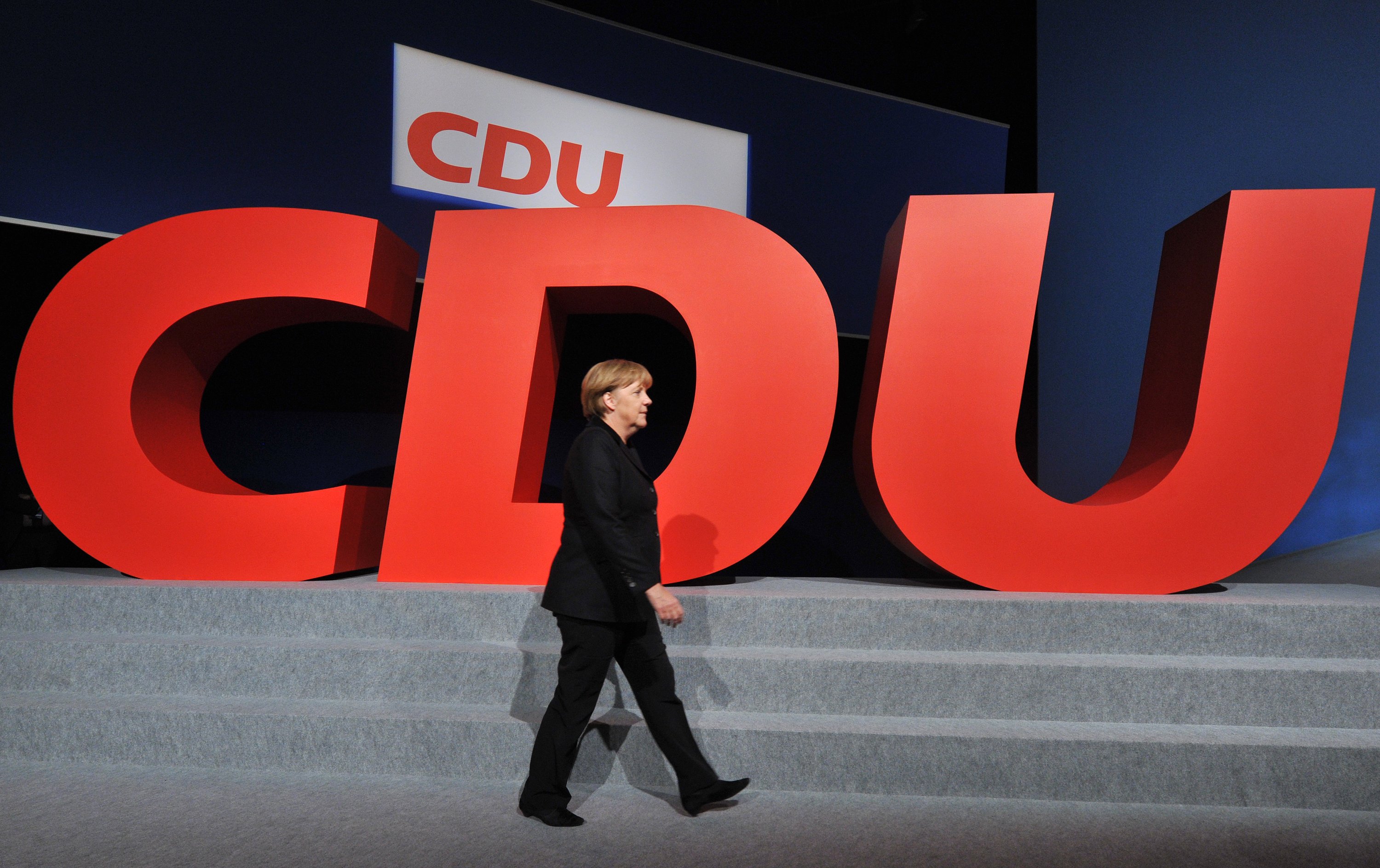
The CDU stands out among other major political parties in Germany, namely the Social Democratic Party (SPD), the Green Party, and the Free Democratic Party (FDP), due to its distinct ideology, policies, and electoral strategies.
Ideologies
- The CDU aligns with Christian democracy, emphasizing the importance of individual freedom, social justice, and the rule of law.
- In contrast, the SPD leans towards social democracy, prioritizing economic equality and social welfare.
- The Green Party focuses on environmental protection and sustainability.
- The FDP advocates for free-market economics and limited government intervention.
Policies
- The CDU generally supports pro-business policies, including tax cuts and deregulation.
- The SPD advocates for higher taxes on corporations and wealthier individuals to fund social programs.
- The Green Party prioritizes policies that address climate change and promote renewable energy.
- The FDP supports policies that reduce government spending and bureaucracy.
Electoral Strategies
- The CDU traditionally appeals to a broad spectrum of voters, including rural and conservative areas.
- The SPD targets urban and working-class voters.
- The Green Party focuses on younger and environmentally conscious voters.
- The FDP appeals to business leaders and voters seeking lower taxes and less government regulation.
Competitive Dynamics
The CDU, SPD, and Greens have been the dominant parties in German politics, forming various coalition governments. In recent elections, the CDU has faced challenges from the Greens and the FDP, particularly in urban areas. The CDU has responded by adopting some of the Greens’ environmental policies and working to strengthen its appeal to younger voters.
Table: Key Differences Between CDU and Other Parties
| Party | Ideology | Key Policies | Electoral Strategy |
|—|—|—|—|
| CDU | Christian democracy | Pro-business, tax cuts, deregulation | Appeals to broad spectrum of voters |
| SPD | Social democracy | Higher taxes on corporations and wealthy, social programs | Targets urban and working-class voters |
| Green Party | Environmentalism | Climate change, renewable energy | Focuses on younger and environmentally conscious voters |
| FDP | Free-market economics | Reduced government spending, lower taxes | Appeals to business leaders and voters seeking less government regulation |
Impact on German Society
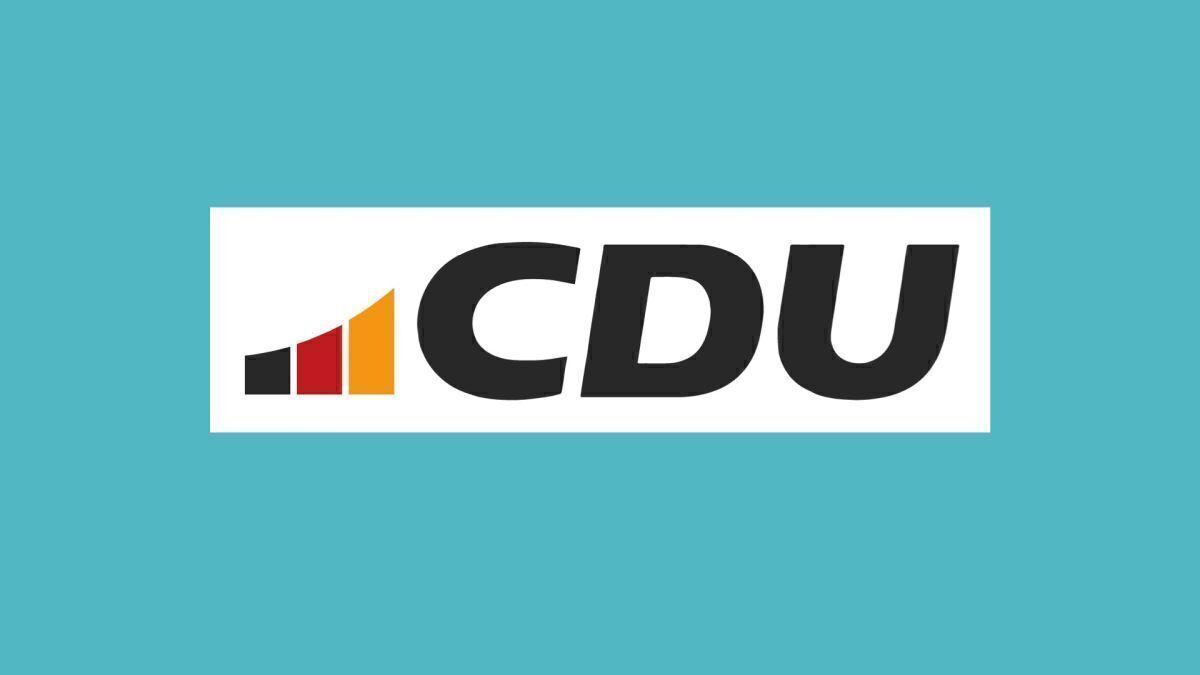
The CDU has had a significant impact on German society, shaping its culture, values, and institutions. The party’s policies and actions have contributed to Germany’s economic, social, and political development.
Economic Impact
The CDU has been instrumental in promoting economic growth and prosperity in Germany. The party’s support for free market principles, fiscal discipline, and social welfare programs has helped create a stable and prosperous economy. The CDU’s policies have also contributed to Germany’s high standard of living and low unemployment rate.
Discover more by delving into Sherif further.
Social Impact
The CDU has also had a significant impact on German society. The party’s commitment to Christian values has helped shape German culture and values. The CDU has also played a key role in promoting social justice and equality. The party’s policies have helped to improve the lives of the poor and disadvantaged.
Political Impact
The CDU has been a major force in German politics for over 70 years. The party has played a key role in shaping Germany’s political system and institutions. The CDU has also been a strong advocate for European integration.
Future Prospects
The CDU’s future prospects are uncertain, but the party faces several challenges. One challenge is the rise of the far-right Alternative for Germany (AfD) party, which has taken votes from the CDU in recent elections. Another challenge is the CDU’s dependence on its coalition partner, the Social Democratic Party (SPD). If the SPD performs poorly in future elections, it could drag the CDU down with it.
Despite these challenges, the CDU remains the largest party in Germany and has a strong base of support. The party’s future success will likely depend on its ability to adapt to the changing political landscape and appeal to a broader range of voters.
Possible Scenarios for the CDU’s Development
There are several possible scenarios for the CDU’s development in the coming years. One scenario is that the party will continue to decline in popularity and eventually lose its status as the largest party in Germany. Another scenario is that the CDU will be able to stabilize its support and remain a major player in German politics. A third scenario is that the CDU will experience a resurgence in popularity and become the dominant party in Germany once again.
Factors that Could Influence the CDU’s Future Success or Decline
Several factors could influence the CDU’s future success or decline. One factor is the party’s ability to appeal to a broader range of voters. The CDU has traditionally been seen as a party of the center-right, but it will need to broaden its appeal to include more moderate and left-leaning voters if it wants to remain competitive in the future.
Another factor that could influence the CDU’s future is the party’s leadership. The CDU has been led by Angela Merkel for the past 16 years, and her departure will create a leadership vacuum that the party will need to fill. The CDU’s future success will depend on its ability to find a new leader who can unite the party and appeal to voters.
Finally, the CDU’s future will also be influenced by the overall political landscape in Germany. The rise of the AfD has created a new dynamic in German politics, and the CDU will need to adapt to this new reality if it wants to remain relevant.
Summary of the Possible Future Prospects of the CDU
The CDU faces several challenges in the coming years, but the party also has a number of strengths. The CDU’s future prospects will depend on its ability to adapt to the changing political landscape and appeal to a broader range of voters.
Table: Possible Scenarios for the CDU’s Development and Its Role in German Politics
| Scenario | Description |
|—|—|
| Decline | The CDU continues to decline in popularity and eventually loses its status as the largest party in Germany. |
| Stabilization | The CDU is able to stabilize its support and remain a major player in German politics. |
| Resurgence | The CDU experiences a resurgence in popularity and becomes the dominant party in Germany once again. |
Key Factors that Could Influence the CDU’s Future Success or Decline
* The party’s ability to appeal to a broader range of voters.
* The party’s leadership.
* The overall political landscape in Germany.
Conclusion
The CDU’s future prospects are uncertain, but the party has a number of strengths that it can build on. The CDU’s future success will depend on its ability to adapt to the changing political landscape and appeal to a broader range of voters.
Case Studies
The CDU has implemented several significant policies in recent years, particularly in the areas of education, healthcare, social welfare, and economic development. These policies have had a significant impact on German society, and have been met with varying degrees of success.
Education
The CDU has prioritized education reform, introducing policies aimed at improving the quality and accessibility of education for all students. One key initiative has been the expansion of early childhood education, with the goal of providing high-quality childcare and preschool programs for all children. The party has also invested in vocational education and training programs, to ensure that students have the skills and knowledge needed to succeed in the workforce.
Healthcare
The CDU has implemented several healthcare reforms, with a focus on improving access to quality care for all citizens. One major initiative has been the introduction of a universal healthcare system, which provides health insurance coverage to all residents of Germany. The party has also invested in digital healthcare technologies, to improve the efficiency and accessibility of healthcare services.
Social Welfare
The CDU has a long history of supporting social welfare programs, and has continued to expand and strengthen these programs in recent years. The party has increased funding for social security benefits, and has introduced new programs to support families and children. The CDU has also worked to reduce poverty and inequality, through measures such as increasing the minimum wage and expanding access to affordable housing.
Economic Development
The CDU has focused on promoting economic growth and job creation, while also ensuring that the benefits of economic growth are shared by all citizens. The party has introduced tax cuts and other measures to stimulate economic activity, and has invested in infrastructure and research and development. The CDU has also worked to promote free trade and open markets, to boost exports and attract foreign investment.
Data Analysis
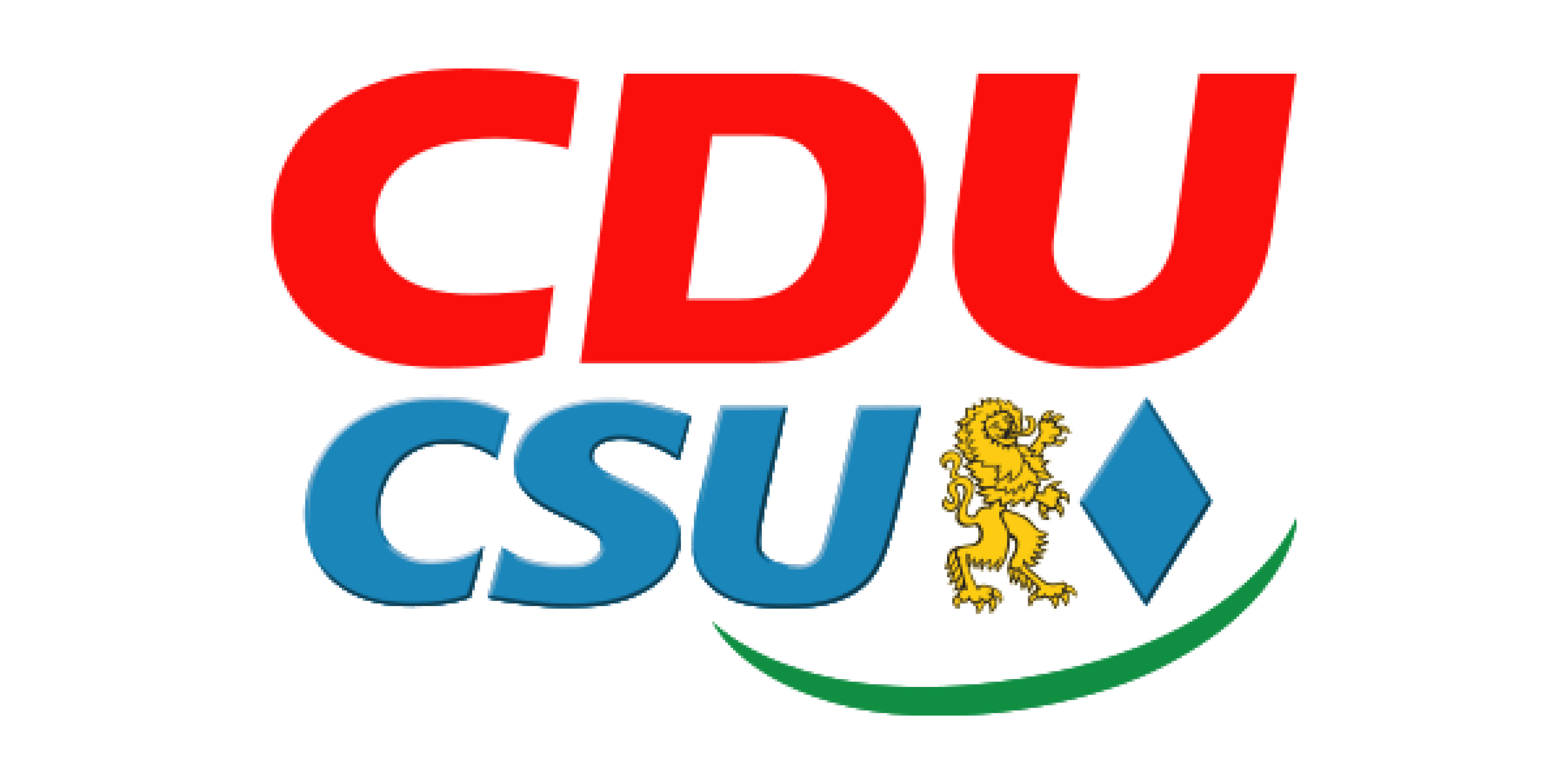
The CDU’s data analysis team plays a crucial role in understanding the party’s membership, electoral performance, and public opinion. By collecting and analyzing data, the team can identify patterns and trends, which inform the party’s strategies and decision-making.
Data Collection
The data analysis team collects data from a variety of sources, including:
- Membership surveys
- Electoral data
- Public opinion polls
- Social media data
- Economic indicators
The team uses this data to create a comprehensive picture of the CDU’s support base, electoral performance, and the political landscape.
Data Visualization
The data analysis team uses data visualization techniques to present key findings and trends. This helps to make the data more accessible and easier to understand for decision-makers and the public.
Statistical Modeling
The data analysis team uses statistical modeling to predict future outcomes. This helps the party to make informed decisions about resource allocation, campaign strategies, and policy priorities.
Interactive Dashboards
The data analysis team has created interactive dashboards that visualize data and track progress. These dashboards are used by party leaders to monitor the party’s performance and make data-driven decisions.
Reporting
The data analysis team produces regular reports that summarize the findings and insights from the data analysis. These reports are used by party leaders to make informed decisions about the party’s strategies and priorities.
Wrap-Up
As Germany navigates the challenges of the 21st century, the CDU remains a pivotal player in shaping the nation’s future. Its ability to adapt to changing societal norms while preserving its core principles positions it as a force to be reckoned with. The party’s continued influence in German politics is a testament to its enduring relevance and the enduring power of its Christian Democratic ideals.